Death is a difficult topic for most people to discuss. It can be hard to know what to say to someone who has lost a loved one. The best thing that you can do is simply be there for them. Listen to their stories and offer your support. Don’t try to fix anything or make it better; sometimes the best thing you can do is just let the person grieve in their own way. If you are looking for ways to help a friend or family member who has lost a loved one, check out our blog post on how to cope with the loss of a loved one. We have compiled some helpful tips and advice that will hopefully make this difficult time a little bit easier for them.
Contents
What Does ” Loss of Loved One” Mean?
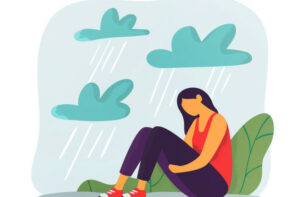 The loss of a loved one often means that someone very close to you has died. This can be a family member, such as a parent or grandparent, or a friend. It can also refer to the death of a pet. The loss of a loved one is always difficult, but it can be especially hard if the death was sudden or unexpected.
The loss of a loved one often means that someone very close to you has died. This can be a family member, such as a parent or grandparent, or a friend. It can also refer to the death of a pet. The loss of a loved one is always difficult, but it can be especially hard if the death was sudden or unexpected.
Bereavement is a state that one is in when they have suffered the loss of a loved one. It can be accompanied by feelings of sadness, disbelief, anger, and guilt. The process of grieving is different for everyone, but there are some common stages that people often go through. These include denial, anger, bargaining, depression, and acceptance.
It’s important to allow yourself to grieve in whatever way feels right for you. There is no timeline for grief and no right or wrong way to do it. Some people find comfort in talking about their loved ones and sharing memories with others. Others prefer to keep their thoughts private and may not want to talk about the person who has died. Some people find solace in religious or spiritual beliefs, while others find comfort in nature or in their hobbies. Whatever helps you to cope with your loss, do not be afraid to seek out support from family and friends. There are also many support groups available for people who have lost a loved one.
If you or someone you know is struggling with the loss of a loved one, please reach out for help. Grief can be an overwhelming emotion, but there is support available.
Signs That Someone Who Is Suffering From “Loss of Loved One”
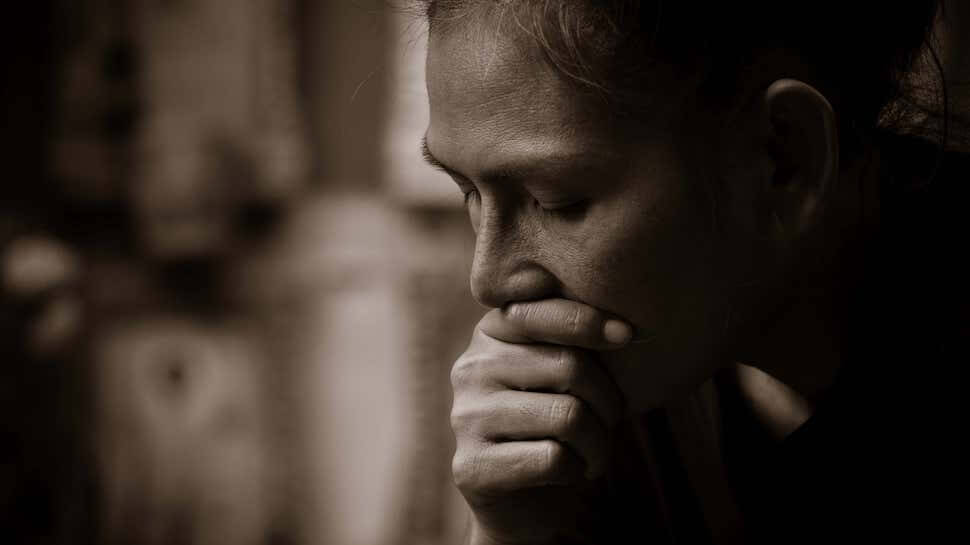
There are many signs that someone is suffering from the loss of a loved one. Some of these signs may be physical, while others may be emotional.
Physical Signs
Physical signs are something that can be seen by others. Some of the physical signs that may indicate someone is suffering from the loss of a loved one include:
Change In Eating Habits
There are many changes in eating habits that can be seen when someone is grieving. They may lose their appetite completely, or they may find themselves overeating. Sometimes there are also changes in the types of foods that a person will eat.
Changes In Sleeping Habits
Another physical sign that can indicate someone is grieving is a change in sleeping habits. They may find themselves unable to sleep, or they may oversleep. Sometimes there are changes in the length of time that a person spends sleeping.
Changes In Appearance
Grieving can also cause changes in someone’s appearance. They may lose weight, or they may gain weight. Their hair may start to fall out, or they may suddenly have a lot of it. Their skin may become pale or their eyes may become sunken in. There can be many changes in appearance when someone is grieving.
Emotional Signs
Emotional signs are something that can be seen by others. Some of the emotional signs that may indicate someone is suffering from the loss of a loved one include:
Change In Mood
When someone is grieving, their mood will often change. They may become more irritable, or they may withdraw from social activities. Sometimes there are also changes in the way that a person talks. They may start to stutter, or they may speak more slowly than usual.
Changes In Behavior
Another emotional sign that can indicate someone is grieving is a change in behavior. They may start to drink more alcohol, or they may use drugs. They may also start to take risks, or they may become more withdrawn.
Changes In Thoughts
Grieving can also cause changes in someone’s thoughts. They may start to have negative thoughts, or they may have difficulty concentrating. Sometimes there are also changes in the way that a person thinks about themselves. They may start to feel worthless, or they may feel like they are to blame for the death of their loved ones.
Sadness
The most common emotional sign of grief is sadness. This sadness can be all-consuming and make it difficult for a person to do anything else besides mourn. People who are grieving often feel like they will never be happy again.
Depression
One of the most common symptoms of grief is depression. A person who is grieving may feel sad all the time, and they may have trouble enjoying things that they used to enjoy. There can be many different symptoms of depression, and it is important to seek help from a doctor if you are experiencing any of them.
Anxiety
Another common emotion that people experience when they are grieving is anxiety. This anxiety can be caused by the fear of death, or it may be caused by the fear of losing another loved one. Sometimes this anxiety can be so severe that it leads to panic attacks.
Guilt
Many people who are grieving feel guilty. They may feel like they could have done something to prevent the death, or they may feel like they should have been able to save their loved ones. This guilt can be debilitating and make it difficult for a person to move on with their life.
Anger
Another emotion that is common in people who are grieving is anger. This anger can be directed at the person who died, or it may be directed at other people. People who are angry often find it difficult to express their feelings in a healthy way.
Isolation
Grieving can also cause a person to isolate themselves from others. They may no longer want to go out and socialize, or they may start to avoid people altogether. This isolation can make it difficult for them to cope with their loss.
Stages of Loss of Loved One
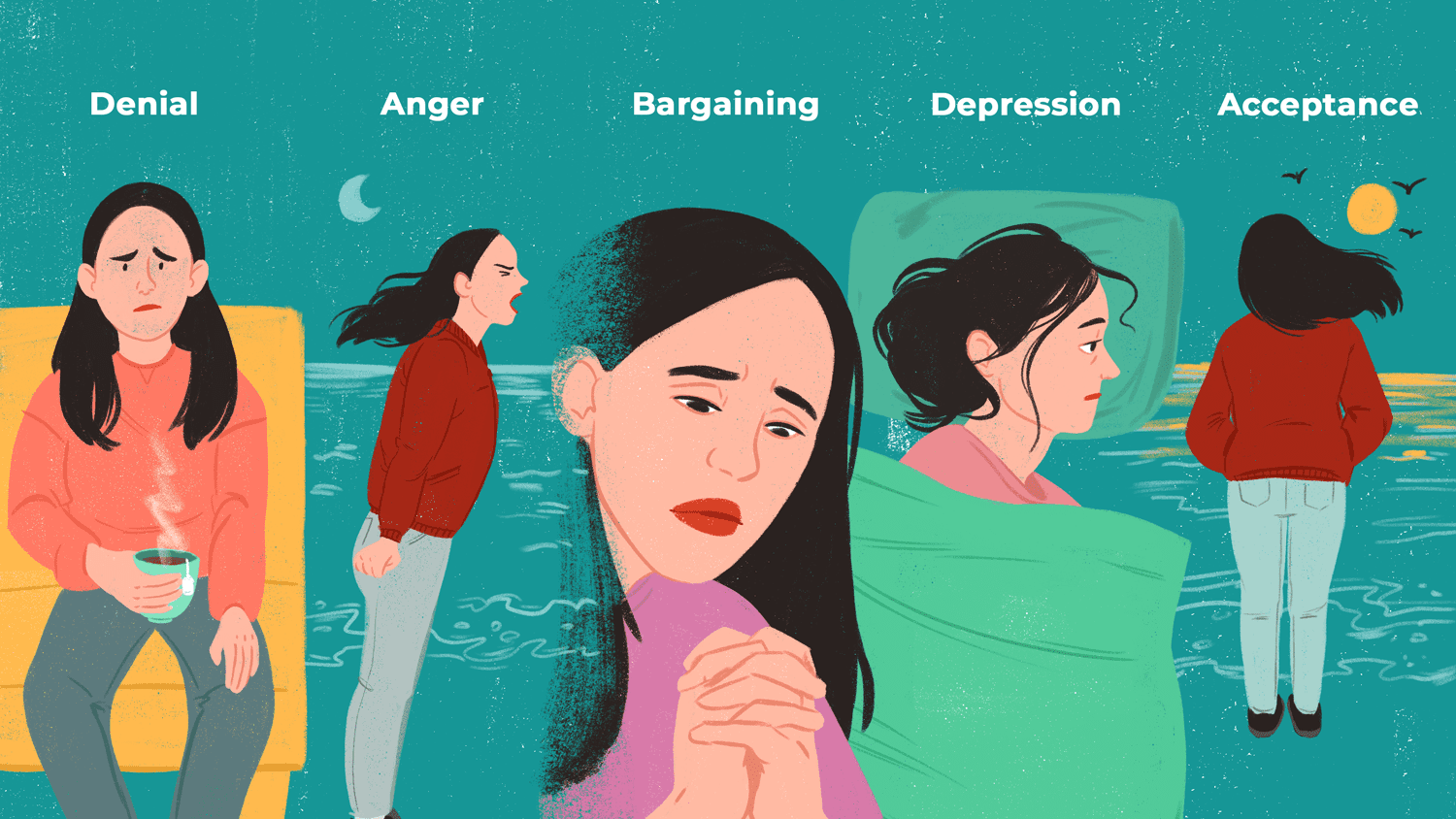
The stages of grief are well-documented. And while everyone experiences grief differently, there is a general order to the stages of grief. They are:
Denial
Denial is a stage that is characterized by shock and disbelief. This is a natural defense mechanism that allows you to absorb the news. Denial gives you time to process what has happened and to prepare for the reality of the loss. Sometimes there may be a feeling of numbness, or a person may feel like they are in a dream. There may be a feeling that the loss is not really happening.
Anger
The anger stage is usually when people start to become more vocal about their feelings. This can be directed at the person who died, or it may be directed at other people. People who are angry often find it difficult to express their feelings in a healthy way.
Bargaining
In the bargaining stage, a person will often make deals with God or themselves. They may promise to do anything if they could just have their loved one back. Or they may try to bargain for extra time with their loved ones. This stage can also involve a lot of guilt, as people feel like they should have been able to do something to prevent the death.
Depression
Depression is often characterized by deep sadness and feelings of hopelessness. This is when the reality of the loss really starts to set in. People who are grieving may start to withdraw from others, and they may have trouble enjoying things that they used to enjoy. It can also be difficult to concentrate or sleep.
Acceptance
The final stage of the loss of a loved one is acceptance. This doesn’t mean that you are happy about the loss, but it does mean that you have come to terms with what has happened. You are able to start moving on with your life and making plans for the future. It is important to remember that everyone grieves at their own pace, and there is no right or wrong way to do it.
How To Cope-up With Loss of Loved One?
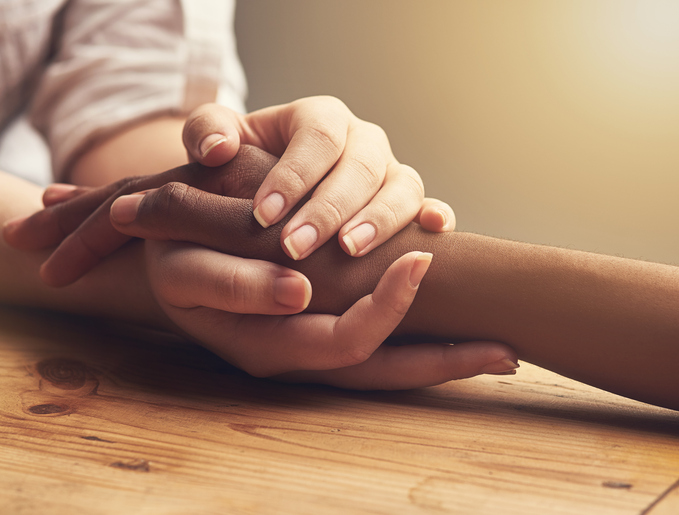
The loss of a loved one is one of the most difficult experiences that a person can go through. It is hard to know how to cope-up with the pain and sadness that comes along with it. There are no right or wrong ways to deal with the loss, but there are some things that might help make the process a little bit easier. Some of these methods are:
Talk To Someone
Talking to someone can be very helpful when coping with the loss of a loved one. It can be a family member, friend, therapist, or any other person who will listen. Talking about how you feel can help you to process the emotions and start to heal. There are also support groups available for people who are grieving. This can be a great way to meet other people who are going through the same thing. Sometimes there can be a feeling of isolation after the loss of a loved one, and support groups can help to combat that.
Try To Accept Loss
Acceptance is something that takes time. You may not be able to accept the loss right away and that is okay. Give yourself time to grieve and process what has happened. In the meantime, try to focus on the good memories that you have of the person. Remember all of the happy times that you shared together. These memories can help to ease the pain and make it easier to accept that they are gone.
Try To Find New Normal
After a loss, everything will feel different. It can be hard to adjust to this new normal but it is important to try. Find things that make you happy and do them as often as possible. Spend time with people who make you feel good about yourself. Create new traditions or keep old ones alive in the memory of your loved one. Find things that make you feel connected to them and hold on to those things. Remember that it is okay to laugh and be happy even though they are gone. They would want you to live your life to the fullest.
Write It Down
Writing down your thoughts and feelings can also be helpful. This can be in the form of a journal, or it could be in the form of letters to the person who died. Writing can be a therapeutic way to express your emotions and to start to process the loss. You can also have a conversation with the person who died by writing down your thoughts and then reading them aloud.
Join Support Groups
Joining support groups can be another great way to cope-up with the loss of a loved one. These groups can provide emotional support, and they can also offer practical advice on how to deal with death. It can be helpful to talk to other people who are grieving and share your experiences. There can be a feeling of isolation after the death of a loved one, and support groups can help to combat that.
Take Care Of Yourself
It is important to take care of yourself when you are grieving. This means getting enough sleep, eating healthy foods, and exercising. You may also want to consider seeing a therapist who can help you cope-up with the loss. Taking care of yourself will help you to feel stronger emotionally and physically. It is also important to allow yourself time to grieve in your own way and at your own pace. There is no right or wrong way to do it. Grief is a personal experience that everyone deals with differently.
Remember Good Times
It is important to remember the good times that you shared with your loved one. This could be something as simple as looking through photos or telling stories about them. remembering the good times can help to bring comfort during this difficult time. There may be moments when you feel like you are not going to make it through, but remember that the pain will eventually lessen. It takes time, but with time the pain will become more manageable.
Move Forward In Your Own Time
Loss takes time, and there is no right or wrong way to move forward. Some people may want to jump into new things right away, while others may take a more gradual approach. It is important to do what feels right for you and not to compare yourself to others. There is no set timeline for grieving, and everyone moves through it at their own pace. There can be good days and bad days, and that is okay.
How To Help Someone With Loss of Loved One?
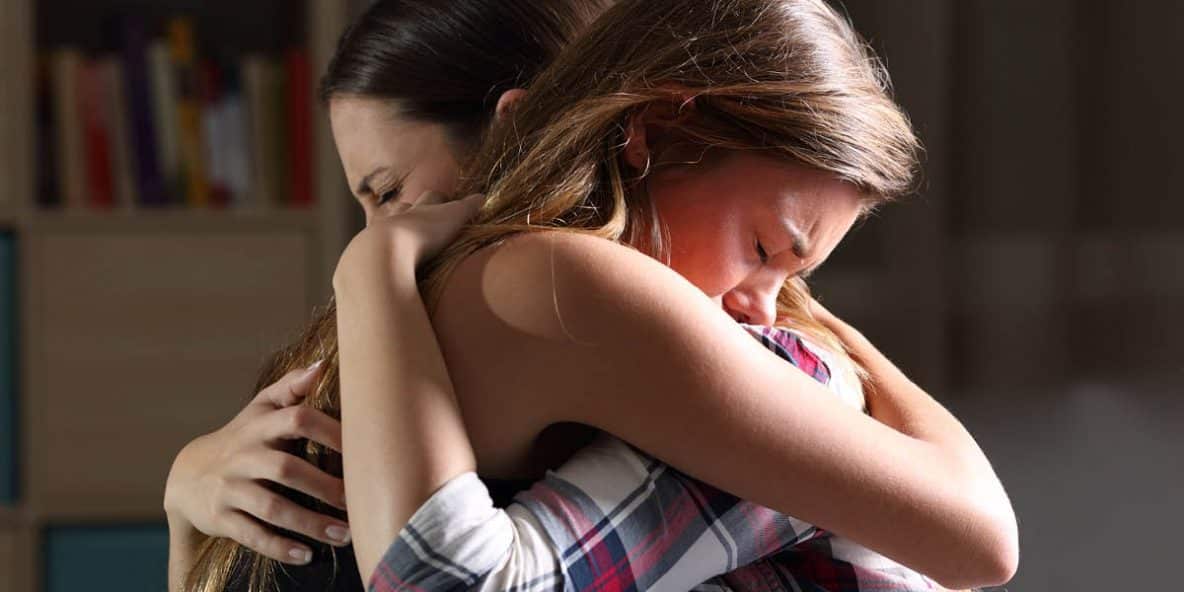
The loss of a loved one is one of the hardest things a person can go through. If you know someone who is going through this difficult time, there are some things you can do to help them.
Be There For Them
There are many ways you can be there for someone who is grieving. You can offer your support and help in any way you can. Whether it’s just being there to listen, or helping with practical tasks, your support will be greatly appreciated. Sometimes there are no words to say, and that’s okay. Just being present can be a great help. There are also many ways to support someone from a distance if you can’t be there in person. You can send cards, letters, or care packages. You can also call or video chat with them.
Do Something In Their Memory
One way to keep the memory of your loved one alive is to do something in their memory. This could be something as simple as planting a tree, or it could be something more involved like starting a scholarship fund. There are many ways to honor the memory of a lost loved one, and doing something in their memory can be a great way to cope-up with the loss. Sometimes there may be many things that need to be done after the loss of a loved one, such as taking care of their belongings or dealing with finances. It can be helpful to focus on one task at a time and to ask for help from others when needed. Sometimes the smallest tasks can feel overwhelming, but remember that you don’t have to do it all at once.
Try To Listen To Them
When you lose a loved one, it is natural to feel like you are all alone in the world. You may feel like you can’t talk to anyone about your pain and that no one understands what you are going through. It is important to try and find someone who will listen to you. Someone who will let you cry and rant without judgment. Talking about your feelings can help them to process them and eventually move on from the loss. There can be a lot of guilt and anger when you lose someone close to you. You may feel like it was your fault or that you could have done something to prevent it. It is important to talk to someone about these feelings as well. They can help you to see that it wasn’t your fault and that you did everything that you could.
Stay Connected
You should stay connected with the people who are still in your life. They can be a great support system for you. They can offer you a listening ear and help to keep your mind off of things. It is also important to find new activities to do. This can help take your mind off of the pain and help you move on. Join a book club, go out for coffee with friends, or start taking classes at the local community center. The more active you are, the better you will feel.
Respect That Person
Respecting someone is one of the most important things that you can do after they die. It is a way to show them that you loved and appreciated them while they were alive. You can write a letter, make a video, or create a memorial in their honor. Whatever you choose to do, make sure it is something that will make them proud. Sometimes there may be disagreements between family members after a loved one dies. It is important to remember that each person deals with grief in their own way and that you should respect their choices.
Conclusion
Loss is one thing that everyone has to experience in their lifetime. It can be a result of many things, such as the death of a loved one, a breakup, or losing something or someone you love. No matter what the cause, it’s always hard to cope with. When someone we love dies, it feels like a part of us has died too. We are left feeling lost and alone in this world. Grief is an intense emotion that can take over our lives completely. There is no right or wrong way to grieve; everyone experiences it differently. There are many ways through which one can help someone who is suffering from loss. The most important thing is to be there for them and to let them know that they are not alone.
A Word From Therapy Mantra
Your mental health — Your psychological, emotional, and social well-being — has an impact on every aspect of your life. Positive mental health essentially allows you to effectively deal with life’s everyday challenges.
At TherapyMantra, we have a team of therapists who provide affordable online therapy to assist you with issues such as depression, anxiety, stress, workplace Issues, addiction, relationship, OCD, LGBTQ, and PTSD. You can book a free therapy or download our free Android or iOS app.


